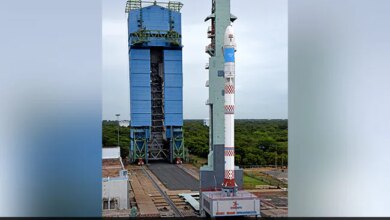Planting Trees May Be an Awful Way to Fight Climate Change

Let’s make one thing clear right away: Planting trees and having a diverse array of them is a great way to improve air quality, promote biodiversity, and absorb harmful carbon dioxide emissions from the air. It’s a crucial component of fighting the effects of anthropogenic climate change and planting efforts need to be ramped up in order to stave off environmental disaster.
However, if it’s done the wrong way, it could actually have a very negative effect on our environment. Unfortunately, that might be the case when it comes to carbon-offset planting—a popular method for large companies to offset their carbon footprint. A paper published today in the journal Trends in Ecology and Evolution that found carbon-offset tree plantations may actually result in a loss of biodiversity and decimate otherwise healthy tropical ecosystems.
“Tropical ecosystems offer a wide array of functions and services to society beyond carbon sequestration,” lead author Jesus Aguirre-Guitierrez, a researcher at the Environmental Change Institute at the University of Oxford, told The Daily Beast. He added, “It is crucial to shift from the narrow focus on carbon and adopt a more holistic perspective if we aim to effectively conserve and restore natural ecosystems.”
The problem has to do with a few factors including the types of trees that are planted. While most tropical ecosystems are incredibly biodiverse, containing multitudes of different tree and plant species, carbon-offset planting typically involves just a few tree species—the most popular being cedar, mahogany, silk oak, teak, and black wattle. These trees also just happen to be the ones most often grown for economic purposes such as timber and pulp.
Planting these en masse in an ecosystem—while financially beneficial—results in a monoculture, decimating biodiversity and ultimately harming the very areas that they were supposed to help.
Where the trees are planted also plays a big role in their impact. Carbon-offset planting efforts typically can be done two different ways: reforestation, which is the planting of trees in areas that have been degraded due to natural or human-caused deforestation; and afforestation, which involves planting trees in areas that are either undegraded or have never been forested before such as savannas or grasslands.
While afforestation can play an important role in improving the environment, they can also harm ecosystems by creating monocultures and disrupting carbon sinks. For example, places like grasslands and savannas already store massive amounts of carbon underground. Planting trees in these areas would result in the carbon being stored above ground, while allowing them to be more susceptible to issues like drought and wildfires. The authors also found that a 40 percent increase in forest cover in the Brazilian Cerrado savannah resulted in a 30 percent loss of biodiversity of plant and insect life.
“Afforestation significantly alters ecosystems, pushing them towards conditions they are not naturally adapted to,” Aguirre-Guitierrez explained. He added, “For example, there is a widespread effort to afforest grasslands and savannas in Africa. However, these ecosystems already perform crucial functions. Afforesting them could diminish their natural capacity to sequester carbon on the ground due to the suppression of natural fire regimes.”
Yet private corporations like fossil-fuel companies, AI tech startups, and automakers all rely on carbon-offset planting via carbon credits in order to reach “net zero carbon emissions.” This includes the likes of Chevron, Comcast, Apple, Volkswagen, Microsoft, and Alphabet.
Moreover, the planting schemes often result in very little carbon capture when compared to what these companies emit on an annual basis. “The current trend of carbon-focused tree planting is taking us along the path of large-scale biotic and functional homogenization for little carbon gain,” the authors wrote. “An area equivalent to the total summed area of the USA, UK, China, and Russia would have to be forested to sequester one year of emissions.”
Despite this, companies will continue to use these carbon credits because it’s an easy way to appear as though they’re doing their part in reducing greenhouse gas emissions. In reality, the best thing that they can do is work towards preserving current ecosystems and reducing their actual carbon footprint directly.
“Why not prioritize the preservation and protection of natural ecosystems, maintaining them in a healthy state, and restoring those that have been altered?” Aguirre-Guitierrez said. “Coupled with substantial reductions in our greenhouse gas emissions, this approach could significantly contribute to our efforts to combat climate change.”




